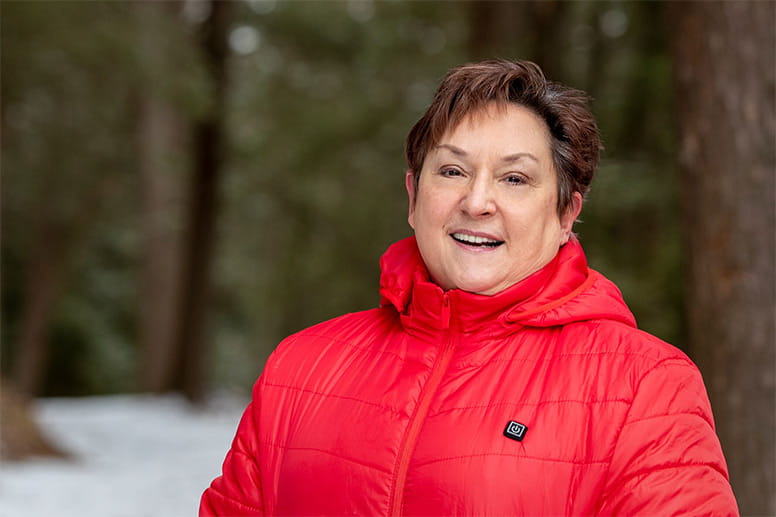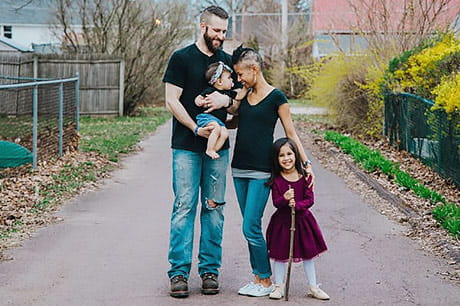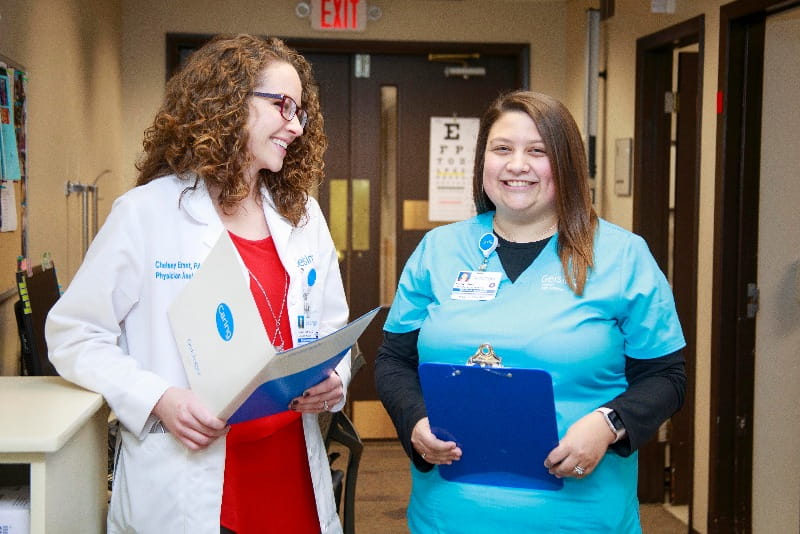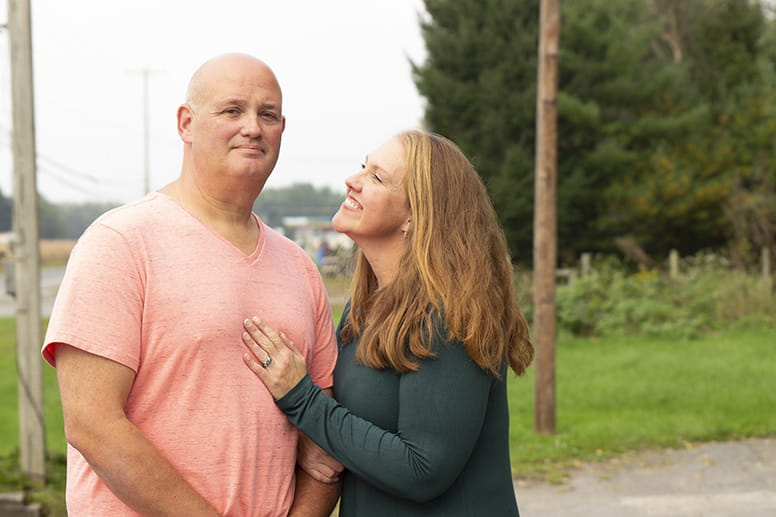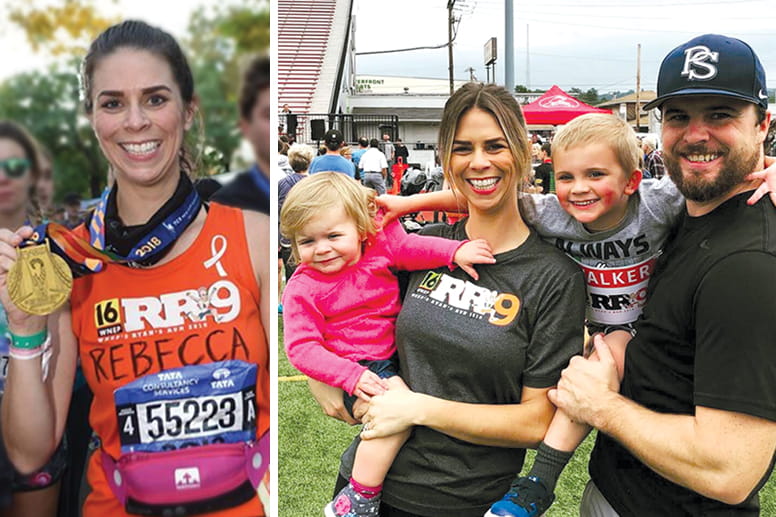Pain management brought light back to her life
After years of pain, Geisinger’s Multidisciplinary Pain Management Program helps Jan find relief.
Four spinal surgeries in 10 years is a lot for anyone to go through. And they left Jan Albertson with excruciating headaches and neck pain.
“The pain was so bad, it forced me to call off work a lot. I was no longer the employee I wanted to be,” the Orangeville resident explains. “Eventually, I had to resign from my job as a systems analyst — a job I loved. Then on top of the pain came depression.”
Struggling through pain and depression
Various types of prescription medication, including methadone, helped Ms. Albertson manage her pain, but they also dulled her senses and made her even more depressed.
“People don’t realize how dangerous these medications are,” she says. “Everything seemed darker. And after years of taking them, I was still in pain. There had to be a better way — and I was determined to find it.”
In 2020, she did. Darla Lee, CRNP, Ms. Albertson’s pain management coordinator, told her about the Multidisciplinary Pain Management Program at Geisinger Medical Center, an innovative approach designed to help people find alternative ways of handling chronic pain and reduce the need for narcotics.
Pain management offers relief
Ms. Albertson learned many new coping skills in an 8-session course taught by Ms. Lee, which covered everything from mindfulness and meditation to exercise, nutrition, and more.
“Although I’m still in pain, and still do take some medication for it, the program has taught me how to manage it by refocusing my attention and not letting it drag me down,” explains Ms. Albertson.
“One of the most important things I learned about is how the mind works, how pain signals are sent and how to break them,” Ms. Albertson explains. “Now, when my pain starts getting to me, I’m better equipped to handle it. I step back and take some deep breaths, I take a walk outside or I simply find something else to focus on. Keeping busy helps with pain — and with depression.”
Sharing her story to help others
Along with the Multidisciplinary Pain Management Program, Ms. Albertson gives her husband a lot of credit for the support he’s given her. She also relies on the power of prayer and says her spirituality has helped get her through the rougher spots.
Today, Ms. Albertson feels more like herself again and is back at work. She’s now a caseworker at AGAPE in Bloomsburg, a Christian organization that serves the community through education, material and financial assistance, networking and sharing the word of God.
“In a way, I see everything that happened as a blessing in disguise,” says Ms. Albertson. “What I’m doing today feels like my calling. As a caseworker during COVID, I see many people who are unemployed, depressed and in danger of turning to drugs. I can tell them from personal experience, that’s not the way to go.”
She shares her story to let others with chronic pain know they don’t necessarily need pain medications to survive. And even just stopping some of them makes a difference.
“If my story gets one person to ask their doctor about the Multidisciplinary Pain Management Program, then it’s worth it,” she says. “I’m a different person now — it’s like a light came on in my life.”
Next steps:
Learn more about the Multidisciplinary Pain Management Program
You don’t have to live with chronic pain – or opioids
